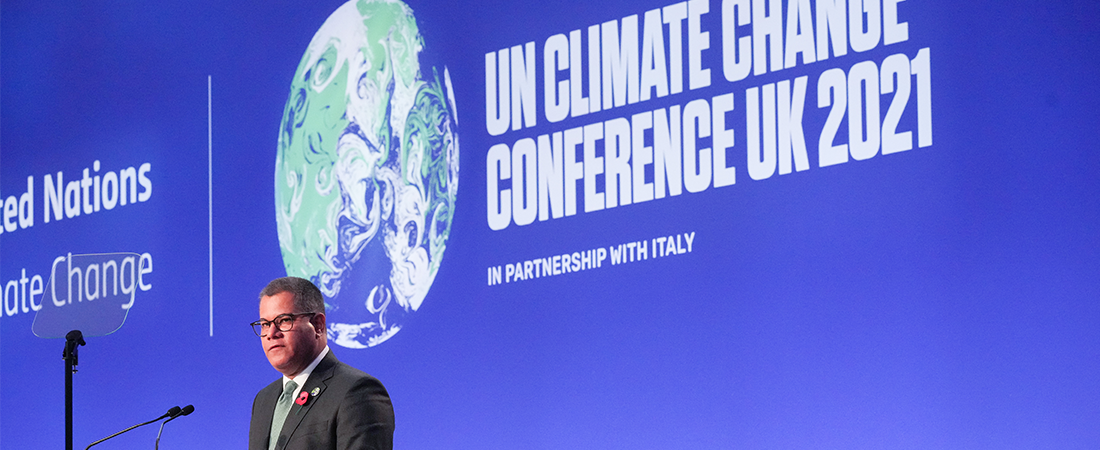As the global COVID-19 pandemic continues to upend economies, stretch health systems, spur record-breaking innovation in testing, vaccines and treatments, and necessitate the biggest vaccination campaign in history, global health leaders are increasingly confronting another global threat to human health and well-being; the impacts of a changing climate.
While the main focus to negotiations kicking-off in Glasgow this week at the 2021 United Nations Climate Change Conference (COP26) will be on securing sufficient cuts to emissions to limit global warming to 1.5 degrees, the gathering is also an opportunity to advance adaptation planning and climate financing to ensure the crucial relationship between human and environmental health is addressed.
While these connections are well understood and established, recent extreme weather events around the world have brought to the fore how even slight increases in warming can have significant impact on human health.
In the Lancet’s recently published annual ‘Countdown on health and climate change’ report, researchers concluded that the 44 indicators tracked ‘expose an unabated rise in the health impacts of climate change and the current health consequences of the delayed and inconsistent response of countries around the globe’. The growing evidence highlights the risks rising temperatures and loss of biodiversity could have on heat related illness, respiratory conditions, cardiovascular disease, the spread of tropical diseases, allergies, nutrition and mental health and more.
In a rare joint editorial appearing in the British Medical Journal and health publications around the world, editors call for ‘urgent action to keep average global temperature increases below 1.5°C, halt the destruction of nature, and protect health’.
Just a few of the now many voices and organisations seeking to mainstream health considerations into climate policymaking and vice-versa. As the evidence builds and extreme weather events increase, many global health leaders increasingly see the need to support global efforts to address the global climate crisis.
Attempting to bring the global health community together around a shared agenda on these issues the World Health Organisation (WHO) has prepared the COP26 Special Report on Climate Change and Health. Setting out what it sees as the health argument for climate action the report includes ten recommendations that seek to integrate health and climate policies across COVID-19 recovery plans and key climate transition areas including energy, transport, nature, food systems and finance.
Acknowledging that health systems around the world are fast becoming part of the frontline of climate change, it encourages governments, the private sector and civil society organisations to support immediate action to halt temperature rises and reap the health benefits they can bring, such as increased walking and cycling for better cardiovascular health and cleaner air easing respiratory conditions. In the longer term, it seeks to encourage governments to ensure health systems and facilities are climate-resilient and environmentally sustainable.
While responding to the global COVID-19 pandemic remains the top priority for many global health leaders, including work to strengthen early warning and surveillance systems, addressing climate change now sits alongside other recognised global health challenges including mitigating the spread of antimicrobial resistance, preventing and treating noncommunicable diseases and continuing efforts to tackle communicable diseases such as polio, HIV, tuberculosis and malaria.
For delegates participating in COP26 the WHO’s COP26 Health Programme and briefing paper aims to ensure a stronger health focus and ambition to COP26. While the 2021 Global Conference on Health & Climate Change convening on the margins of COP26 will engage a broader range of governments, businesses, institutions and financial actors on ways to drive a green, healthy and resilient recovery from COVID-19.
On these issues there is much to be done, with the Lancet’s Countdown report highlighting that just half of countries surveyed reported having a national climate and health strategy in place. The report authors warning that without action to cut emissions, ‘climate change will be become the defining narrative of human health in the 21st century’.
While the stakes are high at COP26, it is just the beginning of the work to cut global emissions, strengthen health systems and ensure they are climate-resilient.





